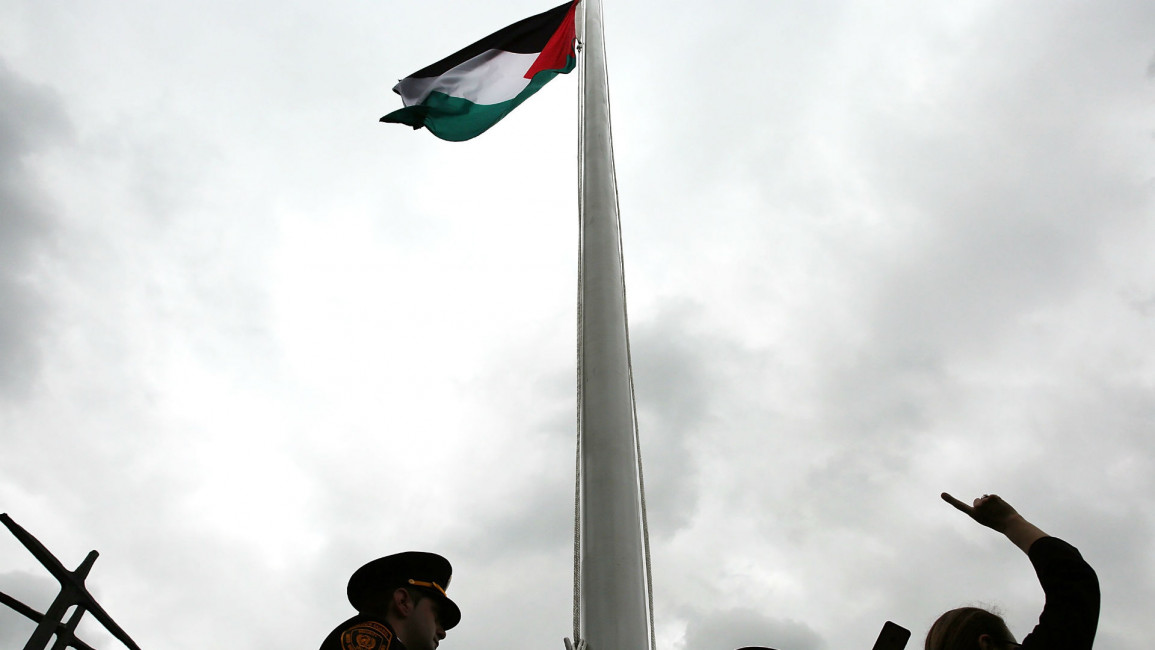Palestine delegation presents critical UN poverty report, despite US, Israel restrictions
Six experts to the Palestinian prime minister, who were due to present a report to the UN in New York, had their US visas delayed making them miss a key conference, a news agency reported Wednesday.
The delegation were due to present the Palestinian implementation of UN goals to tackle poverty and further development by 2030, according to AP.
Palestine's UN Ambassador Riyad Mansour said that Israel "complicated the matter" by refusing to allow several of the experts to travel from Ramallah to Jerusalem, to follow up on their visa applications at the US mission.
"We condemn this action," Mansour said.
The actions go against a US agreement to host the UN, which requires them to allow delegates from countries across the world to attend meetings at the body’s headquarters in New York.
A letter of protest was sent to the General Assembly committee dealing with host country relations.
The US said it was looking into the complaint, while Israel's UN envoy did not respond to AP's request for comment.
The failure of the UN delegates to attend the meeting in New York meant his Mansour's team had to "improvise" and instead presented the Palestinian report on Tuesday.
 |
We almost have 100 percent of education for our kids, our illiteracy is close to zero. |  |
The presentation "received a long applause from the participants", he said.
It began by "condemning the fact that they were denied visas, and the work of our delegation was obstructed in violation of the headquarters agreement".
The meeting was due to discuss UN goals to combat poverty, promote development and gender equality, and preserve the environment by 2030.
Palestine became a non-voting observer state in 2012 after the UN voted overwhelmingly to upgrade its status from an observer state.
Mansour said that although the Palestinians are trying their best to fulfil the different UN goals by 2030, "the overriding issue influencing our effort to accomplish these objectives is the negative effect of occupation" by Israel.
"We almost have 100 percent of education for our kids, our illiteracy is close to zero, there's improvement in the medical field, but there's need and challenges," he said.
Among the needs for the Palestinian Authority are more hospitals, more schools, and more housing.
"In terms of food security, we don't have people who are starving although 1.2 million of the population in the Gaza Strip rely on food programme assistance and help from UNRWA," he said.



